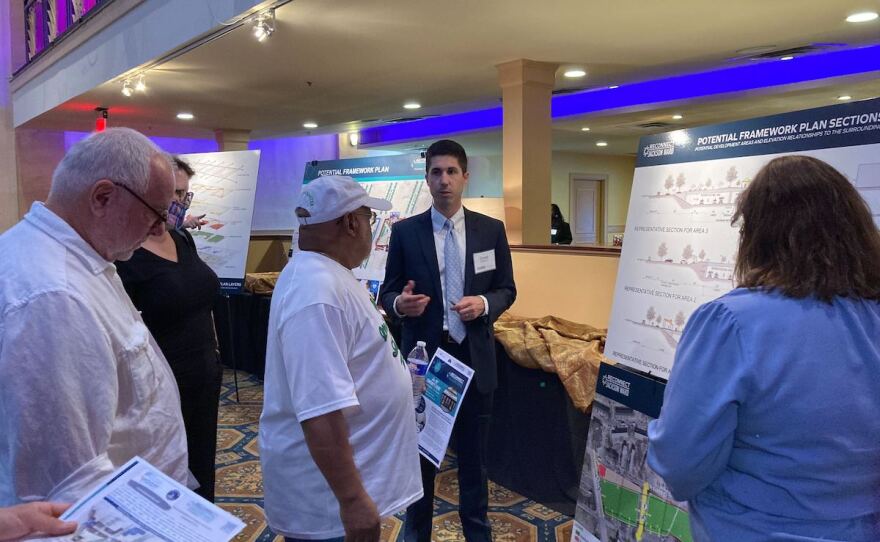Government stakeholders working on a project to reconnect Jackson Ward — a neighborhood once known as the “Harlem of the South” — say their plan will boost investment in the area while paying homage to its history of Black excellence.
The Reconnect Jackson Ward proposal includes capping a four-block section of I-95, and adding green space, new buildings and opportunities to celebrate, arts, culture and history. But urban planner Ebony Walden said Richmond’s got to compete with other cities for the funding to pay for the project. The federal government is investing $1 billion during the next five years as part of the Reconnecting Communities Pilot Program, which the Biden administration launched this year.
Applications for the grant program are due Oct. 13.
“Highways went through communities in almost every city that existed throughout the United States at the time,” said urban planner Ebony Walden during a Wednesday event at The Hippodrome Theater. “So, this bifurcation of Black communities is not unique to Richmond, but we have to make the case for ‘why Richmond?’ ‘Why are we unique?’ 'Why is it an interesting story to tell?'"
Richmond leaders voted about 70 years ago to build Interstates 95 and 64 through the neighborhood, which was created after the Civil War to pack the Black vote into a single area. The construction displaced thousands of residents, including Theo Woodson’s family.
“I’m pretty sure it was a struggle for my family, for my parents to have to do that,” Woodson, who was a toddler when his family left Jackson Ward, said about moving. “Because they didn’t place us anywhere. So, we had to move into a house on Barton Avenue, and the rent was much higher.”
Woodson said he’s excited to see the results of the neighborhood’s eventual reunification.
“Better living conditions, job opportunities. I can see it being very positive,” he said.
The city’s recently approved master plan, Richmond 300, calls for reconnecting the neighborhood. The Virginia Office of Intermodal Planning and Investment, the Virginia Department of Transportation and the city partnered to launch a feasibility study around the project in January, followed by community meetings in March and April. The team will publish a report from those findings later this summer, which will include a more precise estimate of how much the plan would cost.
Planners currently estimate that costs could run between $100 and $400 million.
Carver resident Deloris Bailey has been following the planning process since the group launched the feasibility study. She said the proposal has gotten more and more ambitious, but she’s eager to see it come to fruition, recalling another major historical development in the city during the past two years.
“I never thought those monuments would be removed from Richmond. If they can do that, we can do anything,” she said. “We can rebrand ourselves.”
She’s interested in seeing Richmond win the federal grant money to get it done.
“I want to see who wins,” she said, laughing.











